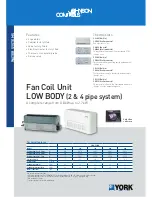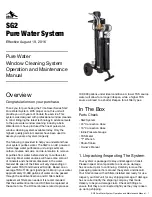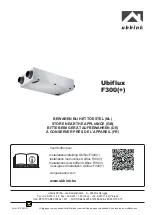
7
/
21
ARC RAYS can burn
Avoid
eye
and
body
damage. Arc rays and infrared
radiation can cause injury to the
eyes and burn the skin. Wear ANSI
approved eye and body protection. Do not
allow viewing by visitors without proper eye
and body protection.
Use a shield with the proper filter and cover
plates to protect your eyes from sparks and
the rays of the arc when plasma cutting or
observing open arc plasma cutting.
Use suitable clothing made from durable
flame-resistant material to protect your skin
and that of your helpers from the arc rays.
Protect other nearby personnel with suitable,
non-flammable screening and/or warn them
not to watch the arc nor expose themselves
to the arc rays or to hot spatter or metal.
WELDING
SPARKS
can
cause fire or explosion
Avoid eye and body damage.
Arc rays and infrared radiation
can cause injury to the eyes
and burn the skin. Wear ANSI approved eye and
body protection. Do not allow viewing by visitors
without proper eye and body protection.
Use a shield with the proper filter and cover
plates to protect your eyes from sparks and
the rays of the arc when plasma cutting or
observing open arc plasma cutting.
Use suitable clothing made from durable
flame-resistant material to protect your skin
and that of your helpers from the arc rays.
Protect other nearby personnel with suitable,
non-flammable screening and/or warn them
not to watch the arc nor expose themselves
to the arc rays or to hot spatter or metal.
CYLINDER may explode if
damaged
Use only compressed gas
cylinders containing the correct
shielding gas for the process used and
properly operating regulators designed for
the gas and pressure used. All hoses,
fittings, etc. should be suitable for the
application and maintained in good
condition.
Always keep cylinders in an upright position
securely chained to an undercarriage or
fixed support.
Cylinders should be located:
Away from areas where they may be struck
or subjected to physical damage.
A safe distance from arc welding or cutting
operations and any other source of heat,
sparks, or flame.
Never allow any electrically “hot” parts to
touch a cylinder.
Keep your head and face away from the
cylinder valve outlet when opening the
cylinder valve.
Valve protection caps should always be in
place and hand tight except when the
cylinder is in use or connected for use.
Turn off input power using the
disconnect switch at the fuse
box before working on the equipment.
Install equipment in accordance with the
local codes and the manufacturer’s
recommendations.
Ground the equipment in
accordance with
the
manufacturer’s
recommendations. Keep away from moving
parts such as fans.
Keep all doors, panels, covers, and guards
closed and securely in place.
ELECTRICALLY POWERED
EQUIPMENT
can
be
dangerous
MOVING PARTS can cause
injury







































